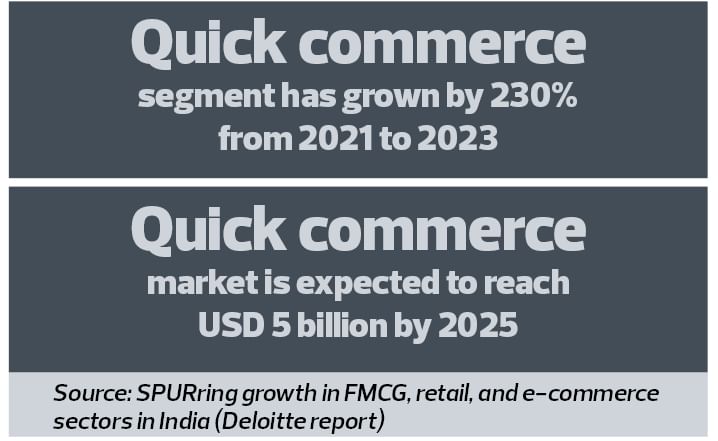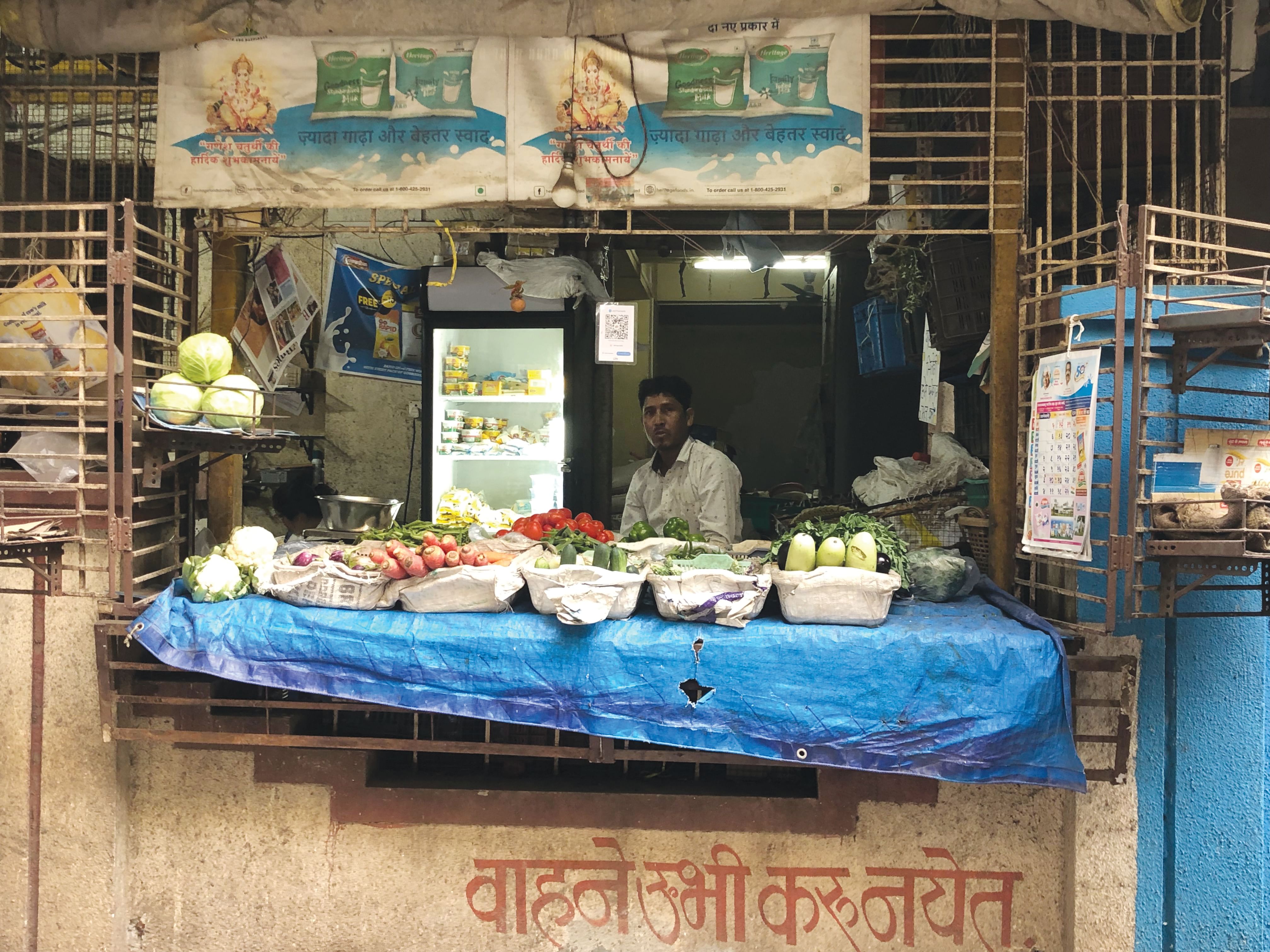Exit the kirana shop: Has the neighbourhood lost its soul?
Kukaram Chaudhary (52), a kirana store owner in suburban Mumbai, believes that standalone kirana shops will shut down. This will happen eventually. And at best, one or two shops in a locality may survive. If Chaudhary downs the shutters of his store, he plans to return to his village and start farming
04 Mar 2025 | By Prabhat Prakash
There was a time when every household had loyalties to a kirana store, and no matter what happened, groceries were purchased from the same store. The same shop would cater to several generations of the family. As high-end department stores and franchise stores burst onto the scene, the humble kirana stores faced some competition but not enough to run kirana stores out of business. As India entered the 21st century, the dynamics started changing.
Team WhatPackaging? interacted with the owner of a kirana shop named Kerala Stores in Borivali, Mumbai. The owner, Kukaram Chaudhary (52), from Rajasthan came to Mumbai to earn a living and 'make some money' in 1995. He opened a shop in IC Colony, Mumbai, and has been in the business ever since. His business was doing well for eight-ten years till DMart set up shop in Mumbai. “DMart's opening in the vicinity impacted 25% of my business. My regular customers started making purchases online," he says.
During the Covid-19 pandemic, Chaudhary's business took a 50% hit. Chaudhary had come to mayanagri with the aspiration that he would make some money and buy a shop, but his dreams have not been fructified. He says, “I have only been able to make enough money to feed my family and myself.”

He adds, “I left my village to earn money, but I haven’t been able to do so.” On being asked what his daily sales are, he says, “We make sales of around Rs 15,000-20,000 per day, but there are no profit margins.” He gives an example of a litre of milk, he mentions that the margin is Rs 1 and he is not able to save enough as there are overheads and miscellaneous expenses. Today, he doesn’t have a regular customer base. He says, “All my regular customers prefer to purchase online or visit retail stores.” All the customers that visit his shop are just making random purchases, with his highest-selling items only being bread, pav, eggs, and milk. Chaudhary says that he has about 500-1000 varieties of products in his shop, some of which even he is not aware of. He remembers those products when customers ask for them.
He says his that his fluency in Marwari, Gujarati, Marathi, and Hindi, and a smattering of English is his USP. No algorithms or SEO can replace that.
Impact of large retail stores
Radhakishan Damani opened DMart in 2000. Later, other businesses ventured into the fast-moving consumer goods (FMCG) market by establishing one-stop stores across India. The frontrunners in those days were Vishal Mega Mart, Hypercity, Big Bazaar, and More, to name a few. These department stores didn’t only sell groceries; they became a one-stop solution for daily necessities and much more. Kirana stores of old couldn’t keep pace with these behemoths due to pricing, discount offers, variety, and delivery. Eventually, kirana stores in tier I and tier II cities started shutting shop as they were not making enough money to sustain themselves. Several kirana stores survived due to a loyal consumer base and the lack of availability of supermarkets in the vicinity.
According to the All India Consumer Products Distributors Federation (AICPDF), quick commerce’s rapid growth has led to around 2,00,000 kirana stores shutting down in the past year. Even during the festive season, the sales of the kirana stores remained stagnant. The nation is home to about 13-million kirana stores of which 10-million are located in tier-II and smaller cities.

AICPDF data also suggests that the rise of quick commerce which is mainly concentrated in metro cities, has led to 90,000 kirana stores shutting down. Additionally, 60,000 stores have closed in tier-I cities, with another 50,000 shutting down in tier-II and tier-III cities. The main reasons for kirana stores running out of business have been reduced profitability and consumer base, heavy discounting, and cutthroat pricing.
Society's loss
In the current scenario, Chaudhury is capable of four to five deliveries a day as he doesn't have the resources, and onboarding people for delivery is an additional cost. On the topic of providing credit to customers, he says, "I give credit to customers who I have known for a long time. Even this is based on interaction and behaviour. There is no credit to new customers."
On being asked what the most expensive products in his shop are, he mentions, “All things are expensive. These days, nothing is cheap." He continues, “Ghee and dry fruits are the most expensive products in my shop, but there are no buyers; people prefer to purchase them online or from malls." Team WhatPackaging? observed customers at this kirana store. Customers favour single-use plus economical packs Chaudhury says the use of small sizes and small packs is the pandemic mantra. This is an opportunity for the packaging industry to create small-size packs.

500-1000 varieties of products in a kirana store
His views on the Unified Payments Interface (UPI) are that it hasn't made any difference to his business, but when card payments are involved, he has to pay a fee, which has to be borne by his establishment.
This is a loss for Chaudhury. It's a loss for our society.
As WhatPackaging? reported during the Covid-19 pandemic, "We are hearing stories of consumers in panic mode at food supermarkets of the Western world, queuing up for food in the fear that it may run out. In India, the humble kirana store seems to have prevented a food apocalypse. The point is, decentralisation is the key. Don't dismantle what works."
Kirana stores have no scope
Even though Chaudhary has been in the business for about 30 years, he doesn't have a backup plan. He says, "In the end, only malls will remain." His son Jayantilal Chaudhary adds, "There is no scope in a kirana store anymore."
Jayantilal says that even after working for 16–18 hours, we are not making enough money. Plus, there are no holidays or weekends. Only in case of an emergency or illness do we shut the shop. He remarks, "In the future, never open a kirana store, as it is a waste of money." Jayantilal mentions that investors are not willing to invest in general stores; they prefer investing in properties. This is a theme that resonates across the sector that the system is rigged and the odds are heavily stacked against the humble kirana store.
Jayantilal adds, "Distributors, suppliers, and vendors don't give them credit, and payments have to be cleared instantly. If credit is provided, interest is levied." According to Jayantilal, the same distributors and suppliers provide credit to big businesses for up to six months but not to shopkeepers.
This isn't just the scenario of Kukaram; in the vicinity where he operates, several shops have shut down due to the lack of business, and several are struggling with their businesses.
Team WhatPackaging? exits the store, and we notice a young couple scrolling through their mobile phone. They purchase online. Once again, an app has proved to be more powerful than Kukaram Chaudhary. The larger question to ask is: Does this mark the end of small standalone businesses? Has the neighbourhood lost its soul?


